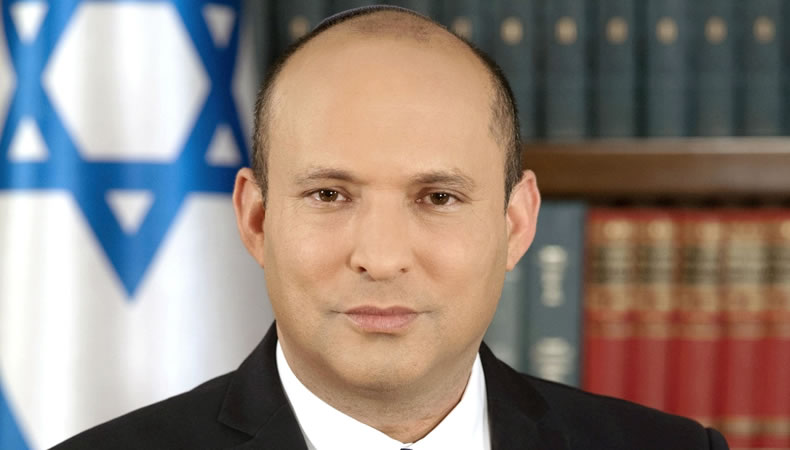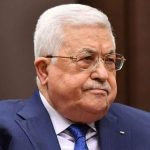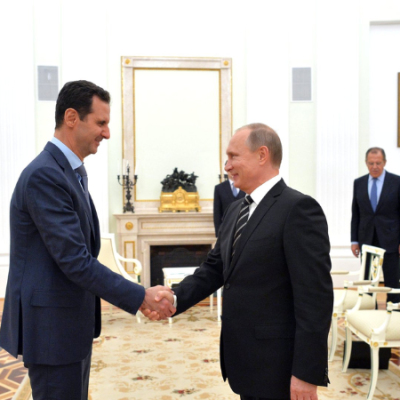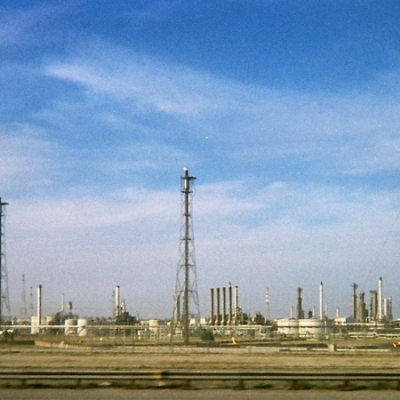Israel’s Naftali Bennett appears as a mediator in the Russia-Ukraine conflict

 Israel– Naftali Bennett was fighting for his political life just a year ago, as Israel prepared for its fourth election in a row. Today, Israeli Prime Minister Binyamin Netanyahu is in the forefront of international efforts to stop the conflict in Ukraine. Bennett has managed to utilize Israel’s outstanding connections with both Ukraine and Russia, as well as his personal relationship with their leaders, to convert himself into an unexpected mediator, just as he took advantage of unique circumstances to become the most improbable of prime ministers.
Israel– Naftali Bennett was fighting for his political life just a year ago, as Israel prepared for its fourth election in a row. Today, Israeli Prime Minister Binyamin Netanyahu is in the forefront of international efforts to stop the conflict in Ukraine. Bennett has managed to utilize Israel’s outstanding connections with both Ukraine and Russia, as well as his personal relationship with their leaders, to convert himself into an unexpected mediator, just as he took advantage of unique circumstances to become the most improbable of prime ministers.
Despite the fact that he has yet to make any big diplomatic breakthroughs, he is one of the few international leaders who speaks to all sides on a daily basis, offering a ray of optimism for resolving the three-week-old conflict. Since an unexpected travel to Moscow on March 5 for meetings with President Vladimir Putin, Bennett has spoken nothing in public about his mediation. Two additional phone talks with Putin and six with Ukrainian President Volodymyr Zelenskyy, according to his office.
Bennett sees his actions as a moral responsibility to do everything he can to put a stop to the war. Bennett travelled to Moscow to see Putin on the Jewish Sabbath, a day when observant Jews like himself do not travel unless it is for life-saving reasons. Bennett stated this week that Israel will continue to take steps to avert violence and bring the parties to the negotiating table from the battlefield.
Related Posts
Despite the fact that Israel is nearly 1,000 miles away from the conflict, its involvement isn’t wholly unexpected. Israel has long had strong connections with Russia and Ukraine. Both nations have sizable Jewish populations, with over a million Jews from the area migrating to Israel since the Soviet Union fell apart three decades ago. The Israeli and Russian forces have maintained tight relations in recent years to avoid battles in the skies above Syria, and Zelenskyy, who is Jewish, appears to have an affinity for Israel.
In Syria’s civil conflict, Russia has backed President Bashar Assad, while Israel often bombs what it claims are Iranian and Hezbollah sites allied with Assad on Syrian soil. Bennett’s personality, in addition to Israel’s geopolitical advantages, looks to be a role. Bennett’s small Yamina party narrowly squeezed into parliament with seven of the chamber’s 120 seats in last year’s election. Bennett, on the other hand, positioned himself as a kingmaker, giving the crucial votes needed to build a majority government. As a result of this, he was able to become Prime Minister in a power-sharing deal that saw his old mentor, Benjamin Netanyahu, removed from the position.
Bennett, a former high-tech executive who ran two firms that were eventually sold for nine figures, has demonstrated a comparable level of innovation in the workplace. He pushed fast to build solid working contacts with international leaders, including President Joe Biden, Putin, and Zelenskyy, well before the war. Germany was the first to support his mediation efforts, and he carefully organizes his work with Washington and other Western friends. Both parties appear to have developed confidence in this calibrated approach. Andriy Yermak, Zelenskyy’s chief of staff, put his faith in Israeli diplomatic efforts this week.
According to him, Israel took on the tough but honourable task of serving as a mediator in the search for peace and an end to Russia’s aggression against Ukraine. Bennett may play a key role, according to Zelenskyy, who even proposed that Israel might host future cease-fire talks. That would be a significant achievement for Bennett. Bennett has done his best to preserve a sense of impartiality in this regard.
Bennett’s criticism has been muted, despite Israeli Foreign Minister Yair Lapid’s constant condemnation of Russia’s aggression.
Israel has helped Ukraine with humanitarian supplies, but it has not joined its Western partners in sending military aid or putting sanctions on Russia and the numerous Russian-Jewish billionaires who have second homes in Israel. Bennett’s hesitation to go harder on Russia has drew criticism both at home and abroad at times. However, it looks that he was able to keep Putin’s trust.
Bennett’s position has been downplayed by Israeli authorities, who claim he isn’t actively making recommendations or influencing the parties. Instead, they see him as a conduit for communication, relaying information from all sides in a straightforward and genuine manner. The officials, who spoke on the condition of anonymity because they were discussing diplomatic efforts, said both sides’ language has improved. They didn’t go into detail. On Tuesday, Zelenskyy stated unequivocally that Ukraine’s objective of joining NATO is unlikely to be achieved, while Putin appears to have backtracked on prior statements doubting Ukraine’s right to exist as a sovereign entity.
Bennett’s key advantages, according to Vera Michlin-Shapir, a former member of Israel’s National Security Council who released a book on Russia last year, are that he is perceived as impartial and that Israel is a small country far distant from the crisis. Putin, she claims, has some compassion for Israel, owing to the country’s huge Russian-speaking population and Christian holy places. While military connections in Syria have been tense at times, they have contributed to the relationship’s depth.
Bennett is an excellent listener, quick learner, and straight shooter, according to Nadav Eyal, an Israeli journalist and author of Revolt: The Worldwide Revolution Against Globalization. These abilities, as well as his intimate links to the White House, put him in a good position to be a good mediator. But, in the end, he continued, it will be up to Putin to determine when to step down the ladder and finish the conflict. Bennett, he believes, may be a valuable instrument in bringing the Russian side back to some kind of politeness in its attitude to Ukraine.










